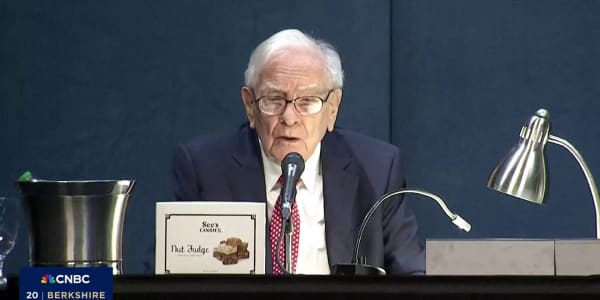Generation Z — those young people age 18 to 22 and born of technology — are, alas, the least healthy, loneliest generation on record. That's quite ironic for a generation that focuses on health and wellness and where invisible threads instantaneously connect us across the globe.
Yet while technology has transformed our lives, it also has produced some toxic, unintended consequences in the workplace. In fact, the problem is so real, former U.S. Surgeon General Vivek Murthy declared loneliness and social isolation in the workplace an urgent crisis and is calling for corporations to address the unintended consequences of technology as it affects employees' mental and physical health.
Addressing an audience at a recent Aspen Ideas Festival, he said, "We have built stronger Wi-Fi connections over time, but our personal connections have deteriorated" as online connections are massively substituting in-person connections.
Supporting Murthy's claim is a study conducted by the University of Pittsburgh's Center for Research on Media, Technology, and Health, which found that the heaviest users of social media had about twice the odds of feeling socially isolated compared to their less "web-connected" friends.
Murthy said that when you're disconnected, you're in a stress state. "Loneliness is associated with a reduction in your lifespan that is as severe as the lifespan you see with smoking 15 cigarettes a day," he said, adding that when there is consistently no organic space for cognitive, physical and emotional well-being to blossom, "it can have a profound impact on your health."
Unfortunately, human beings are suffering silently, unconscious of the causes as to why they're lost.
'We kind of knew something bad could happen'
Tech titans rarely think about the consequences of their advances. In an NPR interview, "Father of the Internet" Vint Cerf addressed "monsters" they had "unintentionally" created with its advent. "It's the mind-stretching practice of trying to think what the implications of technology will be that makes me enjoy science fiction. ... It teaches me that when you're inventing something, you should try to think about what the consequences might be."
Another former technology executive said, "We kind of knew something bad could happen," and claims he has "tremendous guilt" — as though admitting it is enough.
It's not enough. This nonsensical talk about avoiding unintended consequences ahead, from the very people who created the ones we live with today, is ridiculous. We need new voices to detangle rhetoric around future technology. And tech leaders shouldn't guide us, for as Einstein said, "No problem can be solved with the same consciousness that created it."
We need new voices to detangle rhetoric around future technology. And tech leaders shouldn't guide us, for as Einstein said, 'No problem can be solved with the same consciousness that created it.'
Reversing detachment in the workplace
Dozens of global companies are now recognizing the importance of reversing what I have coined "virtual distance" in the workplace — the detachment that happens when conversations occur through smart devices, and when devices distort context and mediate our relationships. This detachment directly impacts productivity and performance, but by using analytics, virtual distance can properly be measured to identify where it is affecting performance, leadership, morale, job satisfaction and innovation.
Here is an example of a case in point: At a major financial services company that I was hired to analyze, strategic IT projects were constantly coming in late and overbudget, with low customer satisfaction. Although the team sat in cubicles right next to each other, they mainly used email to communicate. Applying Virtual Distance International's analytical index to quantify and pinpoint the severity of the problem, the data revealed that virtual distance was the root cause of multimillion-dollar losses and other competitive disadvantages.
More from At Work:
How job-hopping in this tight labor market can help you snare a fatter paycheck
Older job seekers should watch out for these age discrimination red flags
To reduce their virtual distance profile, they implemented in-person discussions to better understand each other's values — something that had disappeared behind virtual curtains. Almost immediately, leadership saw measurable increases to the bottom line and, over time, a raised stock price. In addition, as virtual distance decreased, the VDI analytics showed that trust among team members significantly went up and the team demonstrated higher levels of healthy coherence, engagement and job satisfaction.
With a changed view and remedies like these, we can discover the way back to ourselves and our work. No more sleepwalking through disinformation about what technology can do. Instead, focus on what it can't do. While tech companies may not oblige us just yet, we can choose what experiences dominate our lives. One by one, community by community, nation by nation we can restore our humanity by being gloriously conscious and aware, remaining perfectly, infinitely human.
— By Dr. Karen Sobel Lojeski, founder and CEO of Virtual Distance International. Virtual Distance is a registered trademark of Virtual Distance International.





